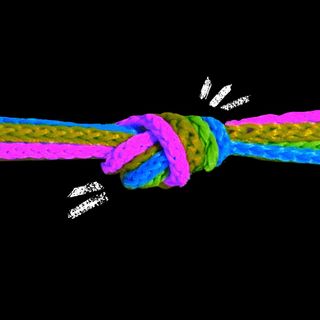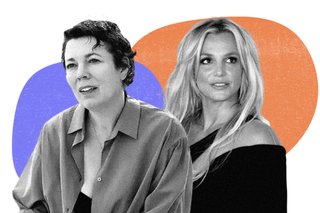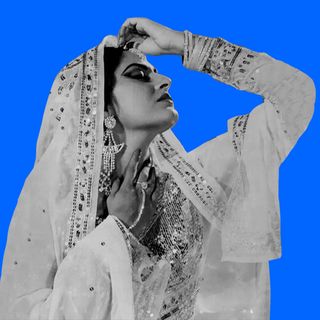
How ‘Bad Mothers’ Were the Victims All Along
As Britney Spears finds herself defending her mothering skills once again, a look into her past shows how the system weaponizes motherhood against imperfect women.

“I pushed past everyone and opened the bathroom door — it was ridiculous; the locks on that door didn’t even work — and there she was, standing, pacing, holding the sleeping baby. She was dressed for a night out, in Louboutins. The bath is running. You could see the light filling up the bathroom from the choppers. I told her she needed to let Jayden go, and, as she’s about to hand me the kid, the firemen blow things up. They take the kid and bring a gurney and strap her down. She didn’t say anything. She was just looking at me, staring at me.”
Sam Lutfi, a Hollywood operator, recounted the moment Britney Spears was forced into a psychiatric facility. The events leading up to her imprisonment and punishingly long conservatorship had to do with the cultural fixation on her parenting skills. The court of public opinion, judging by her conduct, had a verdict: she was a bad mother, unfit to take care of her children. And at the behest of abusive family members with their own motives, the state took her away, separating her from her own children — even as she held on to them for dear life up until the final moments.
In the aftermath of her newfound freedom today, Spears is once again finding herself having to vouch for her own mothering skills. The cultural fixation on bad mothers has long demonized women for showing lesser “maternal instincts” when it comes to their children. But a recent cultural reset — in the wake of Britney’s conservatorship and films like The Lost Daughter, based on Elena Ferrante’s novella of the same — shows that when women speak about motherhood, the idea of a “bad mother” quickly falls apart.
Society invests its most weighty ideas into motherhood, such that the role itself becomes too heavy a cross to bear. Nation states, Earth, ships, and ideas that instill a sense of place, loyalty, protection, and most importantly, belonging, are all imbued with motherhood. “Woman is an infinite, untrodden territory of desire which at every stage of historical determinism, men in search of material for utopias have inundated with their desires,” wrote Klaus Theweleit. Many nationalist movements, including India’s own, relied upon the construction of an ideal version of womanhood — of which motherhood was an essential part. There is no room for mothers to be anything but ideal women; indeed, being a mother made someone the idealized woman of mythology. Even a cursory scan of the kind of motherhood that popular culture upheld shows how anything less than a self-effacing, self-sacrificial women isn’t worthy of being called a mother at all — inducing guilt in any who may want to clutch their own individuality.
Being a mother didn’t have to be so hard. But induction into motherhood necessarily means induction into the norms of womanhood constructed by larger forces — almost too big for any one person to comprehend. When someone becomes a mother, they accede to an unspoken code of conduct becoming of good women themselves — abandoning their own desires, needs, and personhood in service of a new human that they’ve brought into the world. It makes motherhood one of the most political sites in history: almost all countries, India included, attempt to legislate bodies into a version of motherhood that has little to do with birthing a child, and everything to do with policing the conduct of a person.
When Britney was imprisoned for more than a decade in her own body, it was her motherhood she was denied access to. Her children had to be kept safe from her — all because she didn’t behave the way she was meant to. Bad mothers in pop culture are ubiquitous — with women caricatured as cold, evil, and distasteful for not upholding the constructs foisted upon them. Motherhood then involves forfeiting the right to make mistakes, to be irresponsible, carefree, or even self-interested. Many have noted how neoliberal feminism has warped the definition of empowerment to impose a double burden on women with ambition, while stripping away public funding into services that involve communities coming together for the upkeep of children.
Related on The Swaddle:
‘The Lost Daughter’ Unravels the Myth of the ‘Good Mother’
“The expectation that the mother is primarily responsible for the children and family home disfigures our relationships,” writesRebecca Asher, in Shattered: Modern Motherhood and the Illusion of Equality. Arguably, it’s the relationship that women have with themselves that’s the first casualty of motherhood — leading to a silent, keening anger that bubbles just underneath the surface. And sometimes, the anger bursts forth — leading to an immediate revocation of the right to motherhood, as if it never belonged to mothers themselves.
As more women speak, however, it quickly becomes clear that bad mothers are simply victims of a punishing regime of gender — one that compels women to bend over backward for others but never themselves. Avni Doshi’s novel Burnt Sugar explores this with caustic dispassion — laying bare the tragedy at the heart of motherhood that steers people into destructive choices. In the novel, Tara, who neglected her daughter Antara while following her frenzied passion for a baba (godman) would sometimes “bang her body against the wall and scream silently to herself,” in coping with the unbearable weight of motherhood.
Big Little Lies, a show that intertwines the lives of mothers in a crisis of individuality, shows how motherhood can stifle someone to suffocating proportions. “In Celeste, we realize how far the inevitability of motherhood, and the absolute, all-consuming joy it supposedly brings, has been thrust into women’s psyche — that it has made being remotely dissatisfied with being a mother feel like a personal affront to the kids themselves,” Rajvi Desai wrote for The Swaddle earlier. In Reese Witherspoon’s Madeleine, we see a quintessential good mother’s cracks — she’s not as successful as she might have expected, despite adhering to the script of good motherhood. It makes her confront what she’s lost along the way, in trying to live up to a construct that was arguably never meant to be attainable.
Even historical archives outside the realm of fiction show how “bad” mothers were often mothers in need, pain, or in some form of oppressive institution. Black women were demonized as “welfare queens” and often had their children taken from them; motherhood coalitions in the West further took responsibility for lesbian mothers whose husbands tried to “terminate their motherhood status through the courts.”
In thinking about bad mothers, listening to the mothers speak shows how the judgement that falls upon women for being less than perfect often comes not just from outside, but even from within. There’s perhaps no better treatise on the question of bad motherhood than The Lost Daughter, which forces us to consider that all mothers may actually be bad mothers — for no single mother may want burden they’re entrusted with. Even when, on the outside, they seem fine. “I loved them too much and it seemed to me that love for them would keep me from becoming myself,” says Leda, the novella’s complicated mother who makes a decision early in her life that may have been good for her, but bad for her children. Who’s to say if she was at fault? It was a systemic failure at play that forced her and, in real life, countless women to pit their own lives against those of their children.
Recognizing bad mothers as victims, then, would be to recognize the catch-22 situation that all mothers are forced into by default. The system is designed in such a way that one’s own interests can never align with those of one’s children — as a woman, choosing the former over the latter is to invite the harshest indictment upon one’s personhood. In society, it’s bad enough to be a bad person — but it’s even worse to be a bad mother. But when the bad mothers speak, the cracks in the world at large begin to show.
Rohitha Naraharisetty is a Senior Associate Editor at The Swaddle. She writes about the intersection of gender, caste, social movements, and pop culture. She can be found on Instagram at @rohitha_97 or on Twitter at @romimacaronii.
Related


Why Celebrating ‘Brahmastra’ to Save Bollywood From the ‘Boycott Gang’ Is a Flawed Approach
